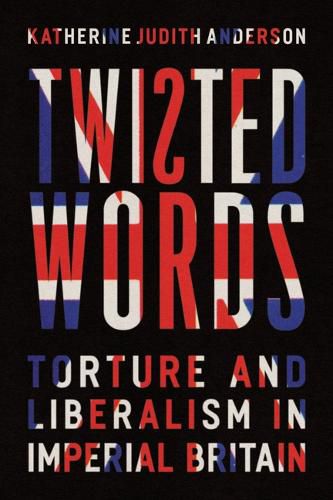Readings Newsletter
Become a Readings Member to make your shopping experience even easier.
Sign in or sign up for free!
You’re not far away from qualifying for FREE standard shipping within Australia
You’ve qualified for FREE standard shipping within Australia
The cart is loading…






Twisted Words: Torture and Liberalism in Imperial Britain examines torture across the fiction, periodicals, and government documents of the British Empire in the latter half of the nineteenth century. Placing acts of torture and words about torture in relation to changing definitions of citizenship and human rights, Katherine Judith Anderson argues that torture--as a technique of state terrorism--evolved in relation to nineteenth-century liberalism, combining the traditional definition of exceptional acts of cruelty with systemic, banal, or everyday violence. Analyzing canonical novels by George Eliot, Anthony Trollope, and George Meredith alongside an impressive array of lesser-known fiction through the lenses of critical terrorism studies and political, legal, and phenomenological theory, Anderson rethinks torture as a mode of reclaiming an embodied citizenship and demonstrates how the Victorians ushered in our modern definition of torture. Furthermore, she argues that torture is foundational to Western modernity, since liberalism was, and continues to be, dependent on state-sanctioned--and at times state-sponsored--torture, establishing parallels between Victorian liberal thought and contemporary (neo)imperialism and global politics.
$9.00 standard shipping within Australia
FREE standard shipping within Australia for orders over $100.00
Express & International shipping calculated at checkout
Twisted Words: Torture and Liberalism in Imperial Britain examines torture across the fiction, periodicals, and government documents of the British Empire in the latter half of the nineteenth century. Placing acts of torture and words about torture in relation to changing definitions of citizenship and human rights, Katherine Judith Anderson argues that torture--as a technique of state terrorism--evolved in relation to nineteenth-century liberalism, combining the traditional definition of exceptional acts of cruelty with systemic, banal, or everyday violence. Analyzing canonical novels by George Eliot, Anthony Trollope, and George Meredith alongside an impressive array of lesser-known fiction through the lenses of critical terrorism studies and political, legal, and phenomenological theory, Anderson rethinks torture as a mode of reclaiming an embodied citizenship and demonstrates how the Victorians ushered in our modern definition of torture. Furthermore, she argues that torture is foundational to Western modernity, since liberalism was, and continues to be, dependent on state-sanctioned--and at times state-sponsored--torture, establishing parallels between Victorian liberal thought and contemporary (neo)imperialism and global politics.